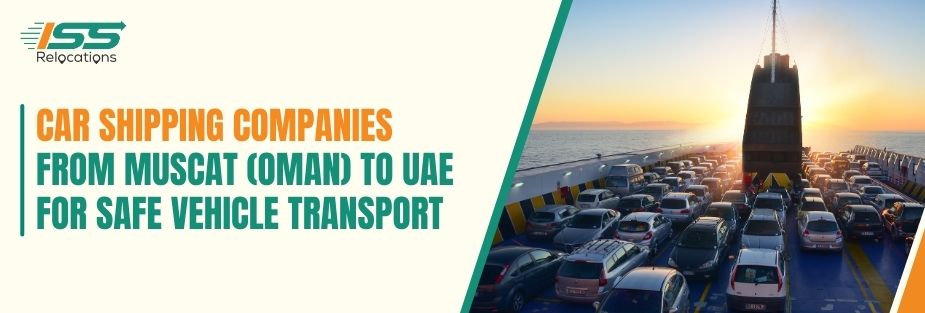
The Role of Customs in International Automobile Shipping
International automobile shipping involves the movement of cars, trucks, and other vehicles across international borders. This process requires adherence to customs procedures and regulations to ensure the smooth and hassle-free shipping of vehicles. Understanding these procedures is crucial for anyone involved in international automobile shipping, including individuals, businesses, and freight forwarders.
The process of international automobile shipping can be complicated, especially when it comes to customs procedures. Adherence to customs regulations is essential for a smooth and efficient shipping experience. In this article, we will discuss the importance of understanding customs procedures for international automobile shipping, the basics of customs procedures, documentation required for international automobile shipping, duties and taxes associated with automobile shipping, restrictions and regulations, and handling disputes and delays.
International Automobile Shipping
Learn the role of customs in international automobile shipping, from documentation to smooth clearance.
The Basics of Customs Procedures for International Automobile Shipping
Customs procedures refer to the rules and regulations that govern the movement of goods across international borders. These procedures ensure that goods are shipped safely, legally, and efficiently. There are different types of customs procedures, including import procedures, export procedures, and transit procedures. For automobile shipping, import procedures are the most relevant.
Import procedures involve customs procedures that apply when goods are brought into a country from another country. The purpose of these procedures is to ensure that the goods meet the regulatory requirements of the country of destination. These requirements may include customs duties, taxes, and other regulatory requirements.
Documentation Required for International Automobile Shipping
Proper documentation is essential for international automobile shipping. The documents required for international automobile shipping include the bill of lading, commercial invoice, and packing list.
The bill of lading is a legal document that serves as a receipt for the goods being shipped. It contains information about the goods being shipped, the origin and destination of the goods, and the terms of the shipping contract.
The commercial invoice is a document that contains information about the goods being shipped, including the description, value, and quantity of the goods. It is used for customs clearance purposes and to determine the duties and taxes that apply to the shipment.
The packing list is a document that lists the contents of the shipment, including the type, quantity, and weight of the goods. It is used to ensure that the shipment is complete and to facilitate customs clearance.
Duties and Taxes in International Automobile Shipping
Duties and taxes are levied on international automobile shipping and can have a significant impact on the cost of shipping. There are different types of duties and taxes, including customs duties, excise taxes, and value-added taxes.
Customs duties are taxes levied by the customs authorities on imported goods. The duty rate varies depending on the type of vehicle and the country of origin.
Excise taxes are taxes levied on the sale or use of specific goods. In the case of automobiles, excise taxes are typically based on the engine size, fuel type, and emissions level.
Value-added taxes (VAT) are taxes levied on the value of the goods being shipped. The VAT rate varies depending on the country of destination.
Understanding the duties and taxes associated with automobile shipping is essential to avoid unexpected costs. Freight forwarders and shipping companies can guide the duties and taxes associated with automobile shipping.
Restrictions and Regulations in International Automobile Shipping
Various restrictions and regulations govern international automobile shipping, including environmental regulations, safety standards, and import/export restrictions. These regulations are in place to protect the environment, public safety, and national security.
Environmental regulations cover emissions standards and other environmental requirements. For example, in the United States, vehicles must comply with emissions standards set by the Environmental Protection Agency (EPA).
Safety standards cover the safety requirements that vehicles must meet to be legally driven on the road. These requirements include features such as seat belts, airbags, and brake systems.
Import/export restrictions refer to the restrictions on the import or export of certain types of vehicles or components. For example, some countries prohibit the import of vehicles that do not meet their safety or emissions standards. Other countries may restrict the export of certain components, such as military-grade technology or sensitive electronics.
Individuals and companies involved in international automobile shipping need to be aware of these regulations and comply with them to avoid penalties, legal issues, and delays in the shipping process. Failure to comply with these regulations can result in fines, seizure of goods, and legal action.
In addition to these regulations, there may also be cultural and ethical considerations to keep in mind when shipping automobiles internationally. For example, in some countries, it may be considered disrespectful to ship a vehicle with a certain type of license plate or to display certain types of decals or stickers.
Individuals and companies involved in international automobile shipping need to be aware of these cultural considerations and adhere to them to avoid offending potential customers or partners.
Call Our Experts Now
Handling Delays and Disputes in International Automobile Shipping
Despite best efforts to comply with customs procedures and regulations, delays and disputes can still arise in the international automobile shipping process. Some common reasons for delays and disputes include customs clearance issues, documentation errors, and damage claims.
Customs clearance issues can arise if the documentation provided is incomplete or inaccurate, if the vehicle does not meet the necessary regulations, or if there are issues with the customs officials themselves.
Documentation errors can also cause delays and disputes if the documentation is missing, incomplete, or inaccurate. This can include issues with the bill of lading, commercial invoice, or packing list.
Damage claims can arise if the vehicle is damaged during the shipping process. It is important to thoroughly inspect the vehicle before and after shipping to ensure that any damage is properly documented and reported.
To handle these issues effectively and efficiently, it is important to have a clear understanding of the shipping process and the procedures and regulations involved. It may also be helpful to work with a reputable and experienced international automobile shipping company that can provide guidance and support throughout the process.
In the event of a delay or dispute, it is important to communicate clearly and effectively with all parties involved, including the shipping company, customs officials, and any other relevant parties. It may also be necessary to seek legal advice or mediation to resolve the issue.
Conclusion
In conclusion, international automobile shipping involves a complex set of customs procedures, regulations, and considerations. Understanding these procedures and regulations is essential for ensuring a smooth and hassle-free shipping experience.
From understanding the basics of customs procedures to complying with regulations and handling disputes, there are many factors to consider when shipping automobiles internationally. By working with a reputable and experienced shipping company and staying up-to-date on the latest regulations and cultural considerations, individuals and companies can ensure a successful and stress-free shipping experience. At ISS Relocations, we understand the importance of providing reliable and professional international automobile shipping services. We are committed to helping our clients navigate the complex world of customs procedures and regulations to ensure a seamless and hassle-free shipping experience. Contact us today to learn more about our international automobile shipping services.”
Also, check our other interesting posts related to automobiles:
Plan Stress-free Move with Top Moving Company in UAE - ISS Relocations

Frequently Asked Questions
How are cars shipped around the world?
Cars are typically shipped internationally using Roll-on/Roll-off (RoRo) vessels or containers. RoRo ships allow vehicles to be driven directly onto the vessel, while container shipping offers additional security for valuable or delicate cars. ISS Relocations specializes in international automobile shipping, ensuring that your car is transported safely and securely, whether by RoRo or container.
How to ship cars to the UAE?
To ship cars to the UAE, you can choose between Roll-on/Roll-off (RoRo) shipping or container shipping. ISS Relocations offers both options, ensuring your vehicle is safely delivered to the UAE, taking care of all necessary customs requirements and handling the logistics for a smooth and timely delivery.
What are the best car shipping companies?
The best car shipping companies are those with reliable, secure, and cost-effective services and a proven track record. ISS Relocations is a leading provider in international automobile shipping, offering expert services, transparent pricing, and a commitment to ensuring that your vehicle is shipped securely and delivered on time.
How to ship a car from Dubai to Europe?
Shipping a car from Dubai to Europe can be done via Roll-on/Roll-off (RoRo) or container shipping. ISS Relocations provides both options, managing all logistics and customs paperwork, ensuring your car is safely and securely transported across borders with full transparency throughout the process.
Can you ship cars from Dubai to USA?
Yes, cars can be shipped from Dubai to the USA, either using Roll-on/Roll-off (RoRo) ships or containerized shipping. ISS Relocations offers international automobile shipping services, handling the entire process from pick-up in Dubai to delivery in the USA, ensuring compliance with all customs regulations and a safe delivery.
What is the most successful transport company?
The most successful transport company is one that offers reliable, secure, and affordable shipping services with strong customer feedback and timely delivery. ISS Relocations is a trusted company specializing in international automobile shipping, offering top-notch services and customer satisfaction through every step of the process.
Which ship is used to transport cars to UAE?
Roll-on/Roll-off (RoRo) ships are most commonly used to transport cars to the UAE. These ships are designed to load and unload vehicles easily, making the shipping process efficient and cost-effective. ISS Relocations ensures that your car is shipped securely and efficiently, whether using RoRo or container options.
Moving Company - Recent Blog
Stay informed and prepared for your next move with our latest blogs on moving services in the UAE. From expert packing tips to international relocation guides, ISS Relocations brings you up-to-date insights to make your moving experience smoother, safer, and stress-free.










